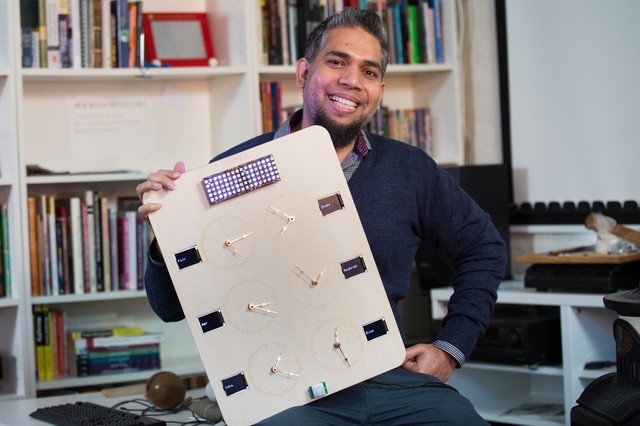It may look like a traditional clock, but behind the design, this timepiece is infused with modern technology that its designers hope will one day integrate Muslim communities and their mosques.
“Remarkable” was the word that inspired the British inventor Zahid Ali to create a prototype of a connected prayer clock that could change the way Muslims communicate in places of worship. Having spent 12 years working in the technological field, Ali and his team came up with the idea for Wafaa, a smartclock for mosques. Wafaa is a purpose-built, “connected” clock that alerts people to congregation times.
The urge to build such a clock began in Ramadan. In Muslim countries, adhan – or the call to prayer – informs worshippers that it’s time for prayers. It happens five times a day. However, it becomes more difficult in non-Muslim countries where there’s no call to prayer.
What makes this clock unique compared with the conventional ones usually found in mosques? Wafaa is equipped with three key functions, Ali explains. These include seamless synching to enable auto-updates through Wi-Fi; audio broadcasting and streaming; and “iBeacon” technology to keep track of mosque visitation trends.
A Wi-Fi connection is the most important requirement, allowing it to automatically update across different platforms, including the clock and smartphone apps.
For example, the imam updates the congregation time using the Wafaa app. The congregation usually takes place five to 25 minutes after the call to prayer. An instruction is sent to the Wafaa system in the “cloud”, which updates all Wafaa clocks in the mosques with the correct times.
Original article by Asmaa Al Hameli
Continue reading at The National:
Wafaa – a clock that integrates Muslim communities and their mosques




















Comments